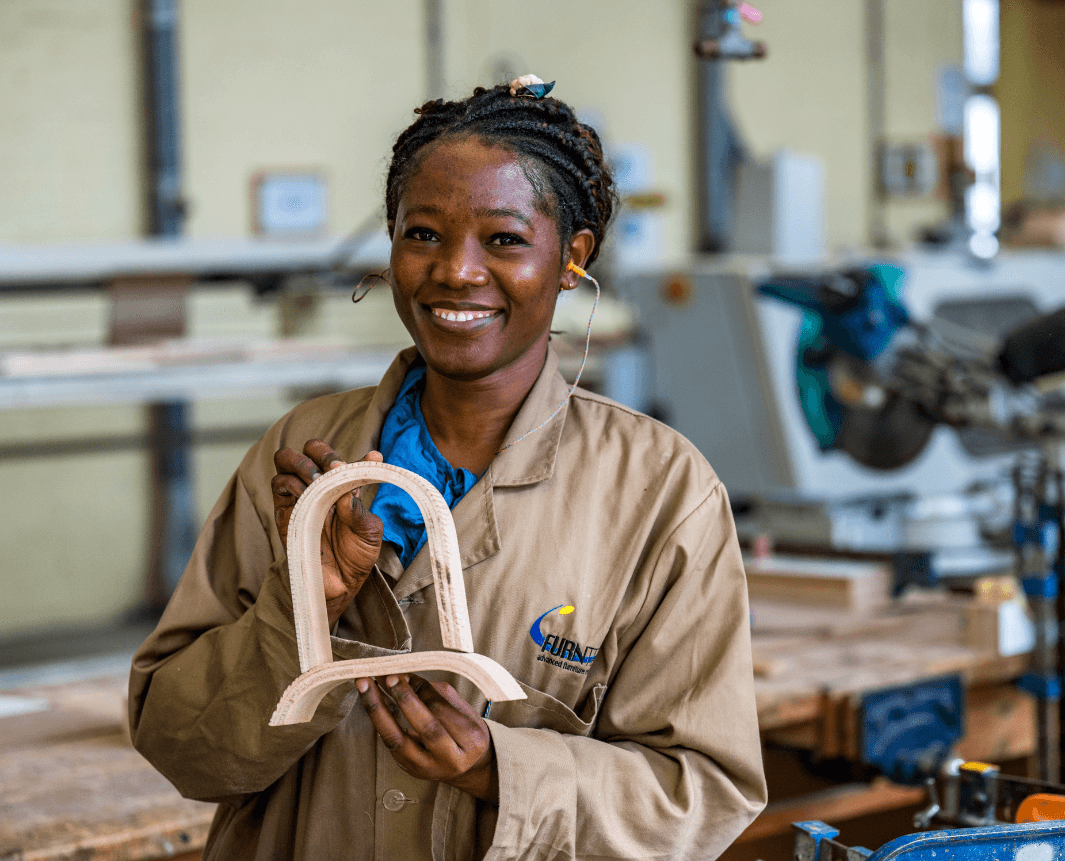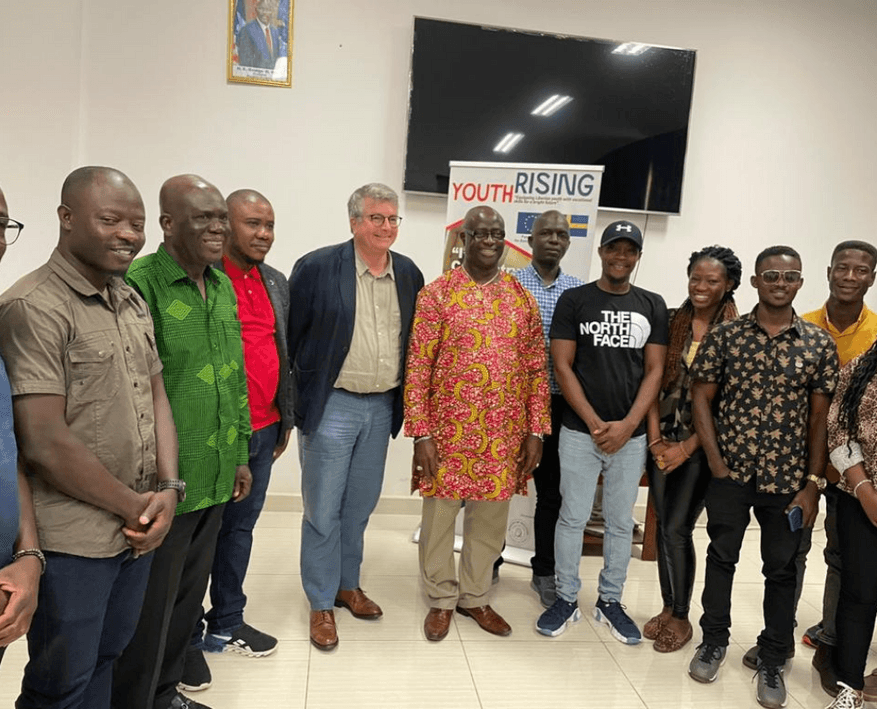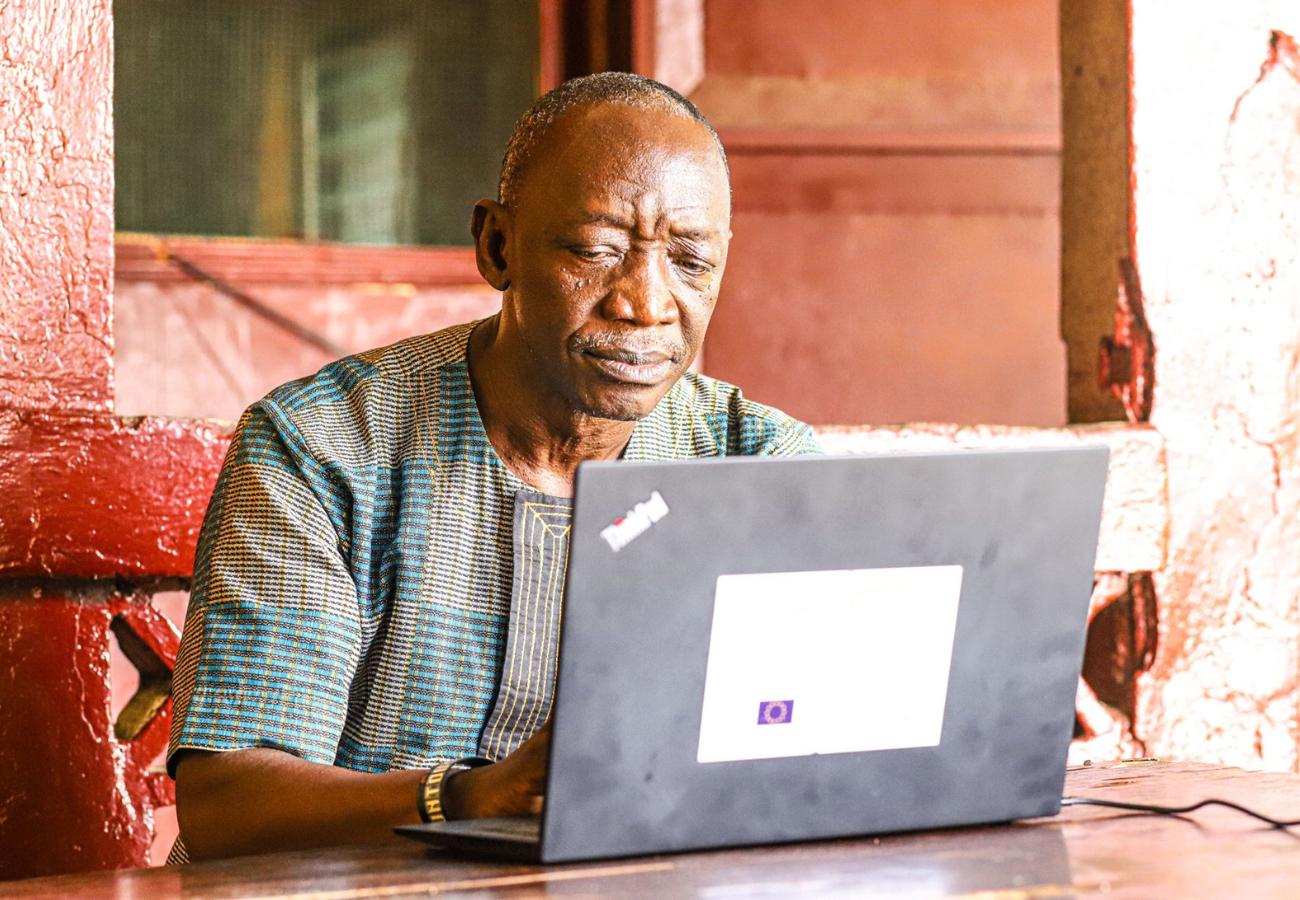Nurturing Potential and Empowering Futures: Recognizing World Teachers’ Day 2023
UNIDO commemorates World Teachers' Day by celebrating some of our esteemed TVET trainees from projects in Liberia and Ethiopia.
- October 04, 2023
- By Jenny Russmann
Every year on October 5th, World Teachers’ Day is celebrated. This day celebrates the anniversary of the adoption of the 1966 ILO/UNESCO Recommendation concerning the Status of Teachers and shines a spotlight on the vital role that educators play in our global community. It serves as a reminder of the significance of skill development and continuous improvement of teaching practices for a better skilled workforce.

In many parts of the world educators face unique challenges in their pursuit of providing knowledge and guidance for young individuals. This year, the theme of World Teachers’ Day revolves around the importance of transforming education in a way that propels the potential of young talent and vocational training – furthering a nuanced understanding of developing skills to stay ahead within global professions as well as rapidly evolving job demands.
To gain insights into the experiences of teachers in various parts of the world, UNIDO’s Learning and Knowledge Development Facility (LKDF) talked to educators from vocational training centers in Liberia and Ethiopia to understand not just their challenges but also to celebrate their achievements as trainers. These projects focus on tackling the issue of unemployment in industrializing economies by providing upcoming young professionals with skills that will allow them to enter the job market as well as push their economies.
UNIDO’s LKDF project in Liberia, Youth Rising, aims to enhance the quality, relevance, and accessibility of technical vocational education and training (TVET) in remote or rural areas. The initiative extends to six schools in a bid to improve the employability of Liberian youth, promoting economic growth, and modernizing TVET infrastructure and equipment. The project further seeks to address equity issues, particularly relating to vulnerable youth, especially those with disabilities.
Skills development also has the potential to address critical issues in countries like Ethiopia, where both road safety concerns and high unemployment rates among its population are pressing national challenges. To address the issue, UNIDO’s LKDF project MISALE strives to introduce mandatory road safety training, such as defensive driving and awareness campaigns in schools in Ethiopia. Thus, the aim of this initiative is to enhance skills in both trainers and trainees to reduce key issues such as lowering vehicle fatality rates from 65 fatalities to 32 per 10,000 vehicles while simultaneously opening job opportunities for youth.

A Long Bridge to Walk
In Liberia, where young professionals lacking skills to find a job is a concern, teachers in training centers are working hard to bridge the gap. Josephine Wata Sama-Robert, a passionate Technical and Vocational Education and Training (TVET) teacher in training, expresses the foreground of this concern: “There are not enough facilities that provide training or skills for students. They also find it difficult to enter the work market because a lot of our people ask for experiences that the students don’t have.”
Youth Rising has garnered positive impact on the country’s vocational education landscape. Jacob Swee, who is the Vice Principal for Instruction and TVET Teacher trainer at the Booker Washington Institute (BWI) in Liberia, noted the project’s success, stating that “According to statistics from our office, 31% of students who conclude the traineeship are individuals who prefer to go beyond and venture into the entrepreneurial world to serve a venture or create their own business instead of just opting for employment – which is good.” This underscores the project’s ability to inspire a movement of entrepreneurship among its trainees, equipping young talent not only with employable skills but also with the confidence and resources to become job creators within their own communities.
These sentiments resonate globally as educators require updated training to excel in their roles. The demand for training is increasingly extending toward technologically advanced and soft skills. Yeabsira, former trainee and now a trainer in training at MISALE, shares her experience with Ethiopian youth’s lack of digital skills. “We have a lot of students from rural areas who don’t have any idea about computers. So we teach them basic computer skills – which is a unique part of our scope because other schools don’t notice this.”
The United Nations recognizes that developing skills and education through the lens of digitalization is a cornerstone of reaching its sustainable development goals. Through UNIDO’s LKDF projects, the demands of the labor market are tackled as “Both digital technology as well as soft skills are now a pivotal portion or component of our training in this 21st century training,” as recounted by Jacob Swee, Vice Principal for Instruction and TVET Teacher trainer at the Booker Washington Institute (BWI) in Liberia.

Beyond the Books
It is important to note that the role of teachers and their techniques transcend the confines of textbooks and curricula, encompassing a broader role that often extends into mentorship. This dynamic becomes particularly evident in the context of growing economies, where the growth and development of young minds are closely intertwined with cultural contexts.
Teachers in such settings not only further technical skills but also serve as personal mentors or even role models who guide their students through challenges, especially in the context of inequalities. These inequalities often extend to issues of gender inequalities. The staggering reality is that women are empowered to achieve on average only 60 percent of their full potential, as measured by the Women’s Empowerment Index (WEI). These numbers are not just detrimental to women’s opportunities and well-being but also overall progress to nations on a global scale – noting the key role and equal abilities that women possess within society. Passionate about empowering young women through her education, Yeabsira recounts, “There are many challenges, especially in this market, so we have to prove that women and girls can do it too.”
This furthers a nuanced understanding that teachers only nurture the intellect of their trainees but also prompt the resilience needed to thrive in often challenging environments. In this multifaceted role, teachers play an indispensable part in sculpting not just more technically skilled individuals but well-rounded young professionals who contribute significantly to their societies’ economies. To support them is to invest in the collective future.
As we celebrate World Teachers’ Day, it should be noted that educators are not merely responsible for advancing and stimulating knowledge but are pivotal to personal development, and mentors who shape the workforce of our future. Governments, communities, and organizations must prioritize teacher training and professional development. It is through these investments that we ensure our educators are equipped with the tools and knowledge to inspire and empower generations to come. As Jacob Swee emphasizes, “we should celebrate teachers every day for their immense contribution to shaping the future of our countries and the world at large”.





